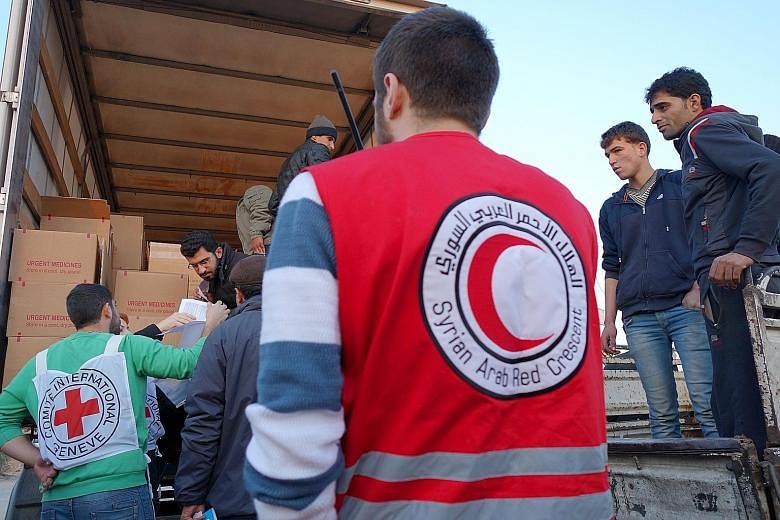The International Committee of the Red Cross (ICRC) is coming under pressure as more of the world's conflicts spiral into humanitarian crises.
This has forced the organisation to scale up its efforts to deliver humanitarian aid even as it struggles to manage its ever-increasing bud- get, the Geneva-based civil rights monitor and aid agency said.
"We are confronted with crises which are protracted. And some of them are conflicts which will go on and will impact on other countries and they become global problems," ICRC director-general Yves Daccord told The Straits Times in an interview this week.
He cited Europe's migrant crisis, triggered by a record influx of refugees and migrants fleeing war, violence and poverty, as an example. Most of them are from war-torn Syria. There are also people escaping fighting elsewhere, such as in Yemen, Afghanistan and Iraq.
"Just look at Syria. Syria, at the beginning, was a Syrian problem, then a regional problem, and now it's a global problem," Mr Daccord said.
In the light of the scale of the humanitarian challenges it faces, the ICRC - whose mandate is to help victims of armed conflicts - has stepped up its aid response in Syria, where the country's five-year- old war looks set to get worse, and in Europe which is facing its biggest migrant crisis since World War II.
In Syria, where the agency is carrying out its single largest operations, it has increased its budget by 4.8 per cent to 151 million Swiss francs (S$213 million) from 144.1 million spent last year.
The amount budgeted includes providing food, essential household items and water and healthcare services for those displaced.
While the core of the ICRC's work is based on assisting and protecting victims of war, in Europe the ICRC has also boosted its efforts, particularly in its area of expertise of reconnecting families separated by conflicts, searching for missing family members and making visits to detained migrants.
The ICRC's overall budget for its operations on the ground has increased year-on-year, with its 2016 budget rising to 1.53 billion Swiss francs from 1.4 billion Swiss francs last year.
"In 2015, the ICRC faced a very challenging year, we avoided cuts in our programmes but faced a shortfall. 2016 will be as challenging with a budget that has increased 11 per cent compared to 2015," said Mr Ewan Watson, head of the ICRC's public relations.
The ICRC's funds are made up of voluntary contributions chiefly from governments, which provide 84 per cent of its budget, as well as from individuals and private-sector donors.

